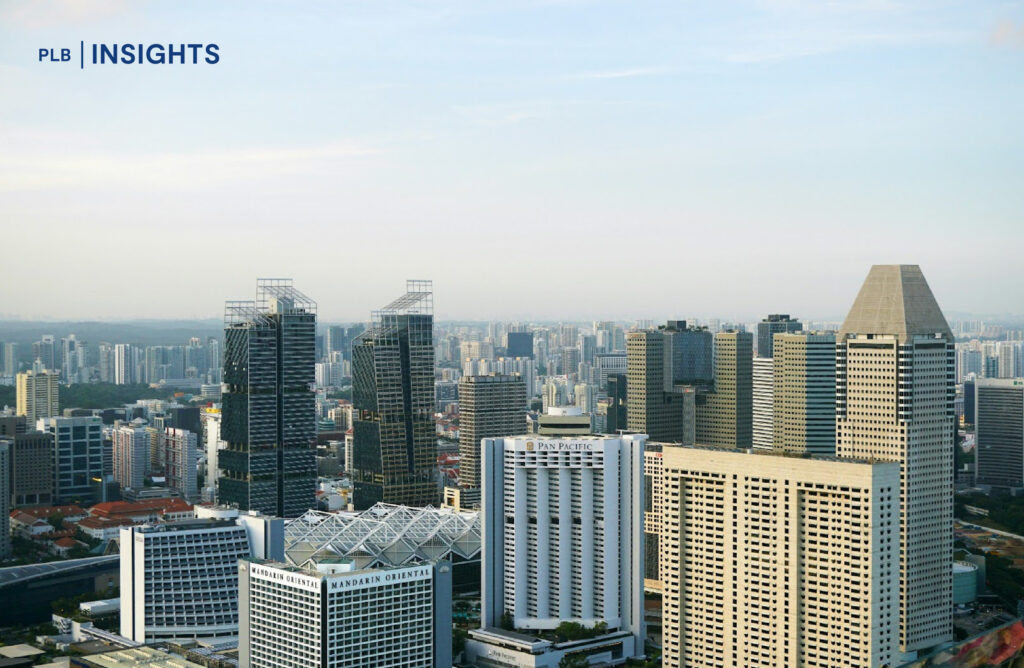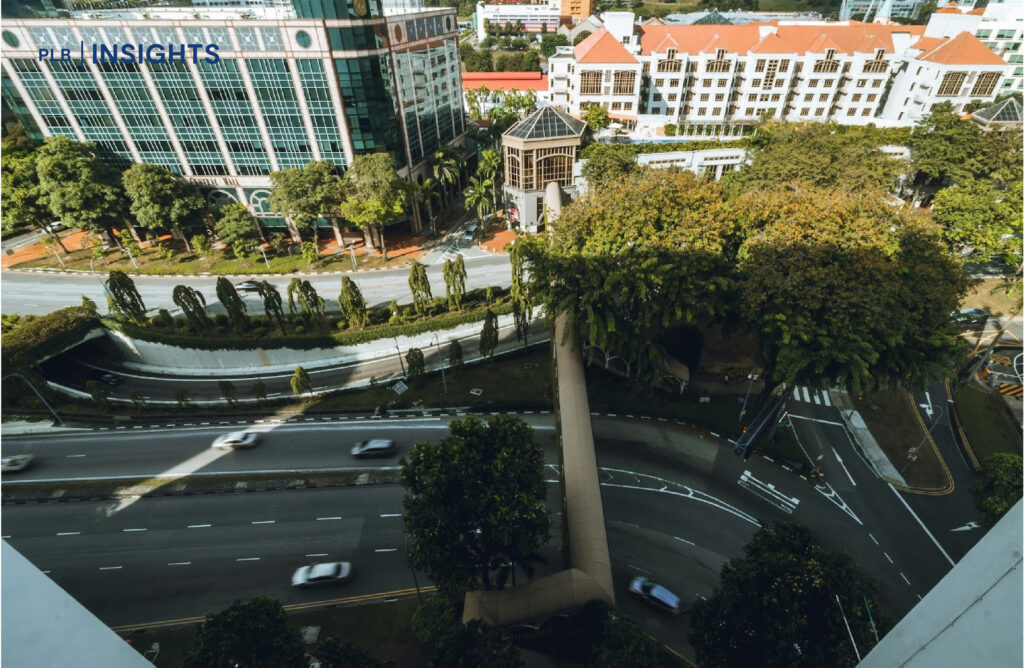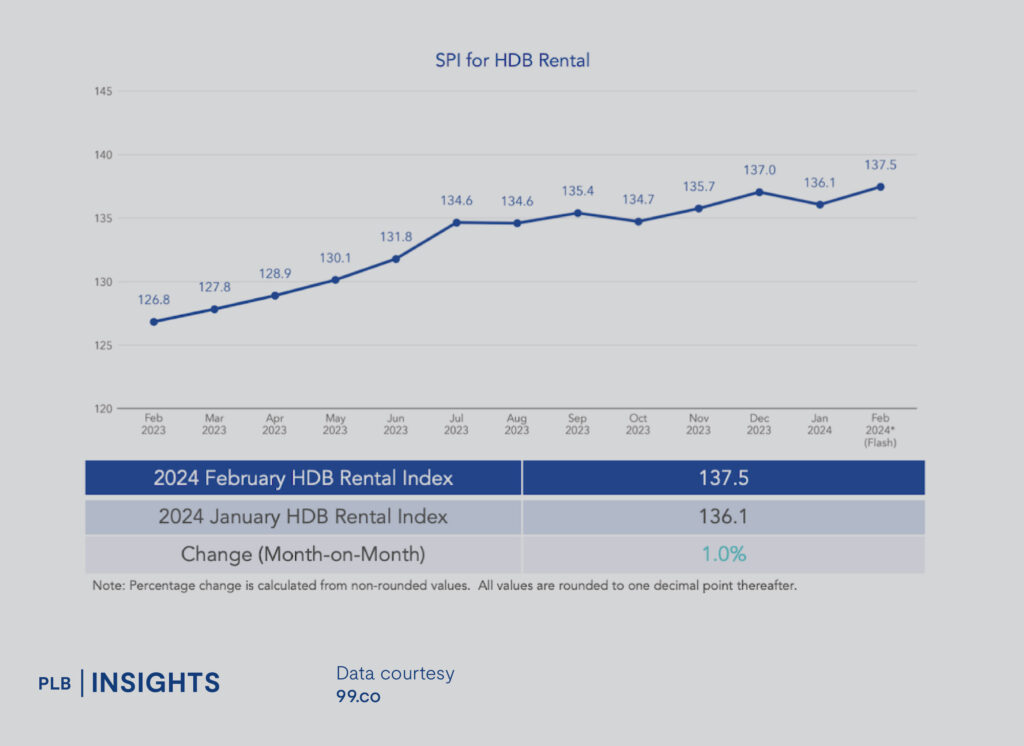
As Singapore’s housing market continues to evolve and adapt to shifting economic conditions while upholding its reputation as a global business hub, it comes as no surprise that the city attracts a diverse community of expatriates seeking higher-quality living and career opportunities.
However, with rising rental costs, expatriates are facing uncertainties and challenges in securing affordable housing options that meet their needs and budget constraints. During a recent parliament hearing, it was stated that HDB flat rents have increased in the last two months despite stabilising from the surge in 2022 in the last year. The average annual increase of rentals rose from 5 per cent in 2021 to 35 per cent in 2022 before coming down to 10 per cent last year. The soaring cost of living has been a concern for both locals and foreigners for some time now, with housing expenses often taking centre stage as the bulk of the financial burden.
In this article, we discuss the reasons expatriates choose to settle in Singapore and explore the disparities and implications of the escalating cost of living–especially rental costs–on them.
Why is Singapore a Popular Destination for Expatriates?
Singapore’s appeal as a popular destination for the expat community comes from a combination of a few different factors that make it the ideal place to live, work and in some cases settle down. Let’s go over some of the key reasons why expatriates move to Singapore.

Career Opportunities
As Singapore is a business hub for various industries including finance, healthcare, technology, logistics and so much more, expats are offered a wide range of job opportunities that help them advance in their careers. Moreover, the city’s strategic location in Asia provides expats with access to a large business network and regional markets.
Economic Stability
Another reason expats choose Singapore as their ideal location is due to the city’s robust and stable economy that is business-friendly and attracts multinational corporations and entrepreneurs. The city also has strong regulatory frameworks in place, low corruption levels, and an infrastructure that is efficient. This makes Singapore an ideal location for those wanting to further advance their careers while residing in a highly developed country.
Safety and Security
Beyond robust regulatory frameworks and minimal corruption, Singapore’s low crime rates, effective law enforcement, and pristine environment make it reputable for safety. This comprehensive commitment to security fosters an atmosphere of trust that is unparalleled in many parts of the world. Particularly for expatriates, especially women and families with children, the assurance of safety is paramount, offering them not just peace of mind, but a sense of security that is fundamental to their well-being and quality of life.
Connectivity, Education and Healthcare
Singapore’s MRT system, along with various other public transportation systems make the country incredibly well-connected. Moreover, its strategic location in Southeast Asia facilitates seamless travel to neighbouring destinations for both leisure and business purposes. Expats seeking exceptional educational institutions for their children have a wide range of options in Singapore including international schools that cater to expatriate families. Moreover, we have high-quality healthcare facilities and skilled medical professionals that guarantee expats have access to high-quality medical care.
Quality of Life
Singapore consistently ranks high in various global quality-of-life surveys as a result of its well-developed healthcare services and facilities, education sector, safe environment and efficient transportation systems that make the city well-connected. Expatriates can also find several locations and neighbourhoods that are home to a significant expat community in the city.
These factors contribute to a high standard of living, which expatriates value and are very likely to take into account when deciding to relocate. Additionally, Singapore offers expats a rich blend of cultures and diversity, allowing them to experience and learn through different cuisines, traditions, festivals and celebrations fostering a vibrant social life.

Impact of Rising Rental Costs on Expats
Amidst the rising rentals and limited availability of affordable housing options for expatriates in particular, finding housing that meets their preferences and needs is becoming increasingly challenging.
In the last three years, rents in Singapore have increased due to supply-side issues and the influx of tenants after the reopening of borders post-pandemic. By increasing the supply of both public and private housing options, the government has proactively taken measures to support residents.
Despite these measures, however, rents of HDB flats have seen an increase since the start of 2024. Coupled with rising rent prices, residents in Singapore are facing higher costs overall as a result of inflation which has continued to stay above pre-pandemic levels at about 3.6%.
Increase in HDB Rentals: January and February 2024

Disparities Expats Face in the Housing Market
The aftermath of rising inflation and living costs is heavily felt by most. However, expatriates living in Singapore typically do not qualify for government subsidies and assistance programs that assist in mitigating the impact of rising costs as these are reserved for citizens and permanent residents. In addition to government support, citizens may often choose to sell their property during the peak of increasing property prices to capitalise on profits. Property owners also have the option to raise rental prices at times like this.
As a result, expatriates have to address challenges posed by high costs and fend for themselves rather than relying on grants, subsidies, and methods Singapore citizens may turn to. They are pushed to solely rely on factors such as their financial resources, negotiation skills, and employer benefits to secure housing that aligns with their financial capabilities and needs.
The impact of rising costs on expatriates in Singapore is putting a focus on the importance of financial planning, budget management and strategic decision-making for long-term well-being. This could involve steps such as reevaluating housing options, lifestyle preferences and a potential for relocating.

Closing Thoughts
The dilemma of rising rental costs in Singapore illuminates the complex disparities and dynamics between citizens and expatriates in the city. Expatriates are confronted with the need to adapt, adjust and optimise their financial strategies and decision-making to navigate challenges arising from rising costs of living. In the current landscape of Singapore’s housing market, the disparity in government assistance and the lack of methods and resources to rely on underscores the challenges expatriates are facing.
As expatriates navigate the current complexities of rising costs in the housing market and economic pressures, outstanding financial planning and proactive decision-making are emerging as essential tools for them to address the implications of escalating expenses to ensure their well-being and long-term stability in Singapore.
Are you currently on the hunt for affordable housing options? If you are facing challenges on your property journey or are seeking guidance for any concerns that arise, feel free to contact us here. Our team of experienced consultants are more than happy to help you on your journey of finding the perfect home.
Until then, see you in the next one.







